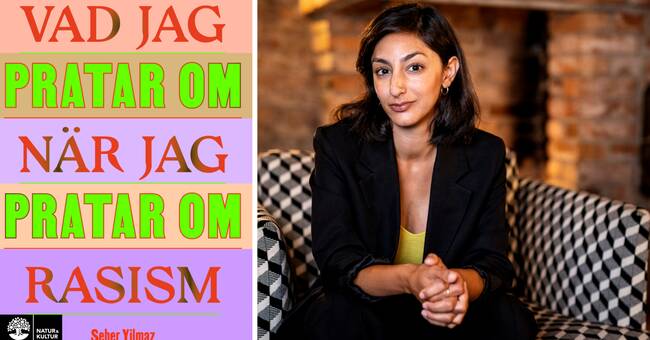The formula "What I talk about when I talk about X" is well worn - but in the title of Seher Yilmaz's book on racism, it is quite appropriate.
The Swedish debate urgently needs to develop a language to talk about racism and the people who suffer from it.
Contributing to the basis of such a debate is the diversity consultant Seher Yilmaz's stated ambition with the book.
It is a useful book
, fairly free from the academic fig language that all too often weighs and closes the conversation about racism. Yilmaz writes concretely, based on her own experiences: growing up in the concrete in Lund with refugee parents, dizzying class and racial journey to the white academic middle class and society's spheres of power, the patient-testing professional experience as a diversity consultant in Swedish organizations that is in the phase of denial and racism effects.
She gives a summary of the criticism of what is called color-blind anti-racism, and how it has come to characterize the functions of Swedish society. The statistics which are kept over different degrees of immigrant background but which do not describe a domestic population with different skin color; the stubborn belief that it is better to talk about ethnicity than about race or skin color, which reinforces the perception of non-whites as non-Swedes; the crippling lack of accepted words to describe the categories of a racist system. All this does not make it easier to name and fight racism, rather almost impossible.
It is possible to describe people
as brown, black, white - then we will be at least a bit on the road.
It is also possible, Yilmaz points out, to keep statistics on such race / skin color categories in a decent way - if you do it in the form of a voluntary, anonymous self-assessment.
Many countries do it, Sweden is quite alone in its reluctance to look at how race / skin color affects citizens' lives and opportunities.
The difficult concept of race has almost been banished from the Swedish public discourse, but more and more of us realize more and more clearly that it has left a hole of dumbness behind.
It is a link that is needed in the analysis and reasoning: if we see nothing as racism, it is almost impossible to see something as racism.
Yilmaz makes the observation that the concept of race is related to the concept of gender;
even though it does not refer to any tangible reality, it has a social reality and has highly tangible effects.
I think this is an enormously fruitful thought that in a fantastic way dissolves the hard knot around the concept of race.
I am more skeptical about some other things.
First
, Yilmaz tends to describe anti-racism as a left-wing project. Much because in her own biography she has the class and racial experience closely intertwined (and quite often it seems to be the class experience that hurts the most), and because in her presentation she constantly gravitates towards a view of society based on a class analysis. There are other ways to be anti-racist. When we now have to make sure to develop a contemporary Swedish racism debate, I think it would be very unfortunate if the whole analysis and discourse is cemented as a left-wing issue.
Secondly,
that she is only interested in structural racism and dismisses the importance of racism as opinion / value / feeling.
I can certainly agree that structural racism - which, strangely enough, survives unthreatened despite the fact that no one sympathizes with it - is the one that is most important to describe and comprehend in the broad sphere of society.
But to completely leave racism as an opinion / value / feeling out of the picture - think hatred and threats against non-whites in public, think anti-Semitism - means that the foundation Seher Yilmaz lays for a contemporary Swedish racism debate does not really function as a foundation.
Finally:
Seher Yilmaz is currently working on diversity issues at Swedish Television.
I have never met her, talked to her or participated in any activity she led.

